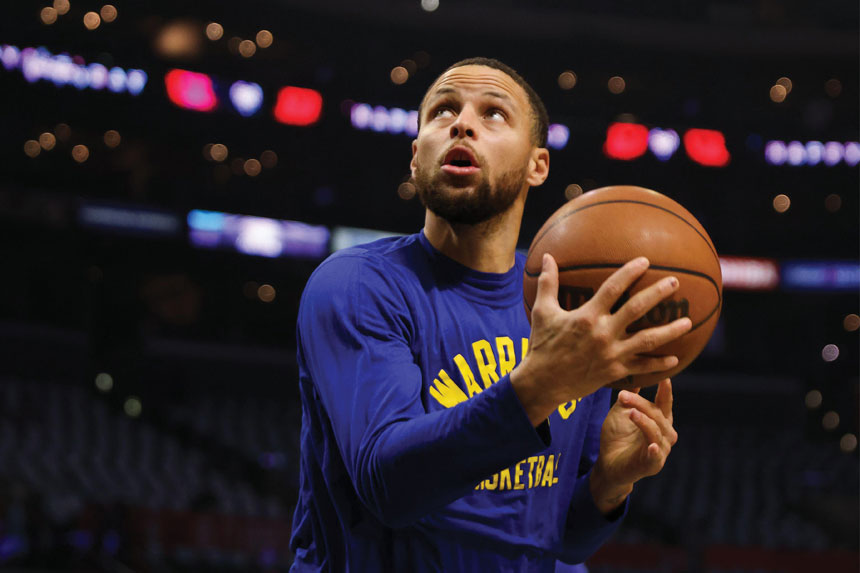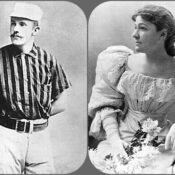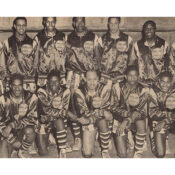The sportswriter’s seat is the best in the house. Not because it comes with free popcorn, though it often does, or because it has a better angle on the big game than the average ticket buyer can procure, which it doesn’t always. What makes the seat worth coveting is its unpurchaseable proximity to greatness in practice. I’ve not been fool enough to waste that. I take notes.
To witness the clutch shot, the winning throw, or the final strike is just a fractional part of the job. Most of your time is spent at practice, watching the alchemical processes by which coaches and athletes find the right action in the moment. Before and after practice, in the back halls and tunnels of clubhouses, a sportswriter can interview some of the greats and gather insights into the vital matter of their performance under pressure.
Once, I sat with the NBA’s celebrated shooter Stephen Curry after a practice with the Golden State Warriors and, unable to resist, actually heard myself say, “Can I feel your hands?”
Curry obligingly held out his palms. I placed mine on top. Shocked, I felt slabs of rough, coarse, flaking calluses. Somehow, I had expected his hands to be soft. Curry’s frame is so sylphlike and flitting, his shot so effortless seeming. But these were the hands of a logger. In that moment, I understood that Curry’s ease with a basketball wasn’t easy at all. It was produced by 2,000 practice shots a week, a labor that rubbed his hands raw.
Encounters like that one brought a fundamental realization: Even the most supple-seeming actors are the products of their own agency. Their skills are not a matter of natural talent but attainment. Most important, their alertness and executive cool in critical moments is earned and learned.
Across the years, I’ve attended ten Olympic Games, and almost as many Super Bowls, assorted NCAA Final Fours, bowl games, major championships in tennis and golf, and the odd car race. My appreciation for the actors and their actions in those events has only grown, not diminished. There is too much false conflating of courage with sports competition, but still, their willingness to keep score and say, “That’s the best I can do,” is a kind of minor bravery, one that demands an interior victory over certain fears and inhibitions. To observe as coaches and athletes grapple with these is endlessly revelatory.

Which suggests that others can learn it, too, even those of us who test our limits at a desk. The provocative connection was reinforced by a conversation with Tennis Hall of Famer Rod Laver. I asked him if all major champions have something in common. “Yes,” Laver replied. “They’re all able to summon their best at the moments when they most need to.”
Who wouldn’t like to be able to do that, no matter what the profession?
Too often we’re overawed by them for the wrong things. We celebrate their glamour and ascribe all kinds of idealized qualities to them they don’t really possess, while ignoring those they do, such as perseverance. The laziest-seeming pro athlete works much harder than the average person, day in and day out, to get better, and is more forthright when it comes to confronting their unevenness under pressure. Too often, we overlook the real merits of the athletic mindset and tell ourselves that it interferes with more serious matters. We don’t do that with any other disciplines in the humanities, arts or sciences, or business. What a discriminatory cheat.
I can’t stress enough that champions are essentially the product of their own work. Even the most secluded superstars would like to be better understood in this respect. I’ve never known a winner, not one, who wasn’t irritated by the lame idea that they were God-kissed with fortunate gifts. All of them sweat in far greater proportion to anything natural-born in them. Kansas City Chiefs quarterback Patrick Mahomes has an implausibly tensile arm, but the main factors that allowed him to win a Super Bowl by the age of 25 were his diligent study and refusal to cheat the grind. When he signed a contract worth half a billion dollars, his idea of how to splurge was to build a 50-yard field in his backyard so “I can get some extra work in,” he told radio host Dan Patrick.
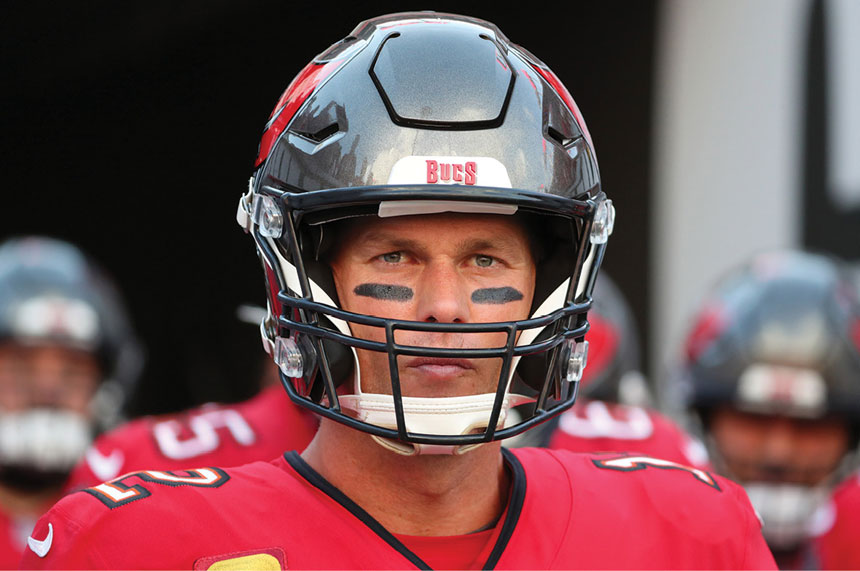
Stand with Kansas City Chiefs Andy Reid on the sideline, January 19, 2020. His team trails 10-0 to the Tennessee Titans with a trip to the Super Bowl at stake. The men on the field exhale in plumes, and the crowd noise is a steady rumble from 76,000 fans pulsing distractingly in their team colors of aorta red, as they wait for Reid to make a call.
Reid has a decision to make, with two yards to go, on the Titan’s 28 yard line. The nature of football is that the pressure ratchets on every sequential play. A team has just four tries to move ten yards, or the other team takes possession of the ball. Thus, the calculus alters, and so does the pressure.
Reid has two options, with different magnitudes of risk. He can opt to have his team kick a three-point field goal, which is safe and reliable. Or he can go for it, try to punch the other team in the gut with a play that will keep the drive alive for a touchdown and the greater reward of seven points. The praise or blame for what happens next will fall squarely on Reid, and his decision will be perceived as a measure of his courage, recklessness, wisdom, and personality all at once.
What job to take? What amount of debt to risk? What town to move to? The fact is, a lot of us are not especially adept at dealing with life-altering decisions. When they do arise, we greet them with a sense of uneasiness, and struggle to make them. Sometimes we make calls from the “gut.” Sometimes we defer to others. And sometimes we freeze, and let events decide us.
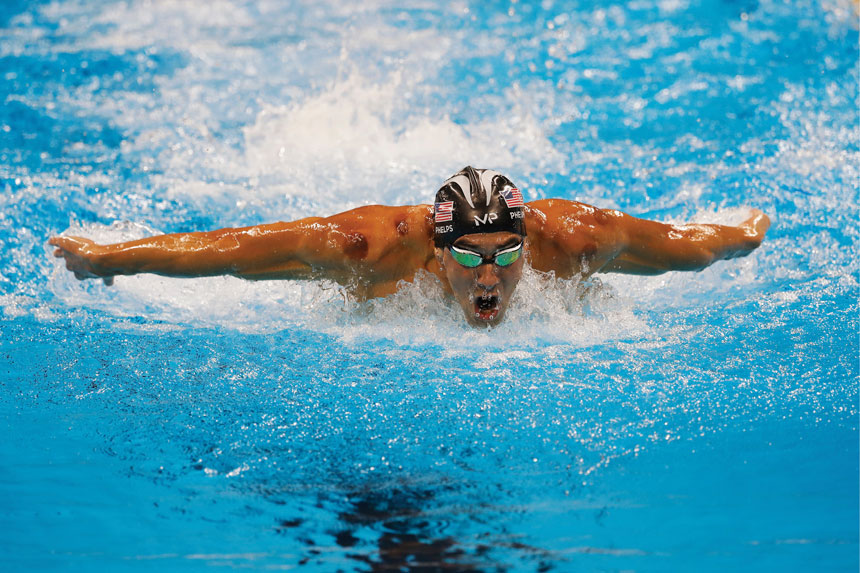
“A lot of times, we don’t put together the best game plan for ourselves,” seven-time Super Bowl-winning quarterback Tom Brady has observed. “We kind of wake up every day and are very reactive to the situations that happen in our life, and you end up never really gaining ground on what’s important.”
But sports demand decision-making with a special intensity. Each actor on the field of play makes literally thousands of decisions over the course of a game. Some of them are bold and stomach-churning choices, and some of them are fractional-second reactions, but all of them are made with the knowledge that their “rightness” or “wrongness” may at a minimum make it hard to sleep that night, and at maximum could alter futures.
Elite performers are highly methodical in their processes, precisely because they deal in fluid situations. Consistent champions don’t just drift through the circumstances of their day; everything they do is deliberate. What you come to notice is that they share some commonalities in how they go about their business, across all endeavors. There is a good reason that NFL Hall of Famer Peyton Manning is as good at television as he was at quarterbacking.
“Decision-making is a mechanism, and it can be trained like anything else,” big wave surfer and innovator-entrepreneur Laird Hamilton comments. “It’s like a muscle, where the more you do it, the better you get at it. And part of being good might just be your willingness to make a decision at all.”
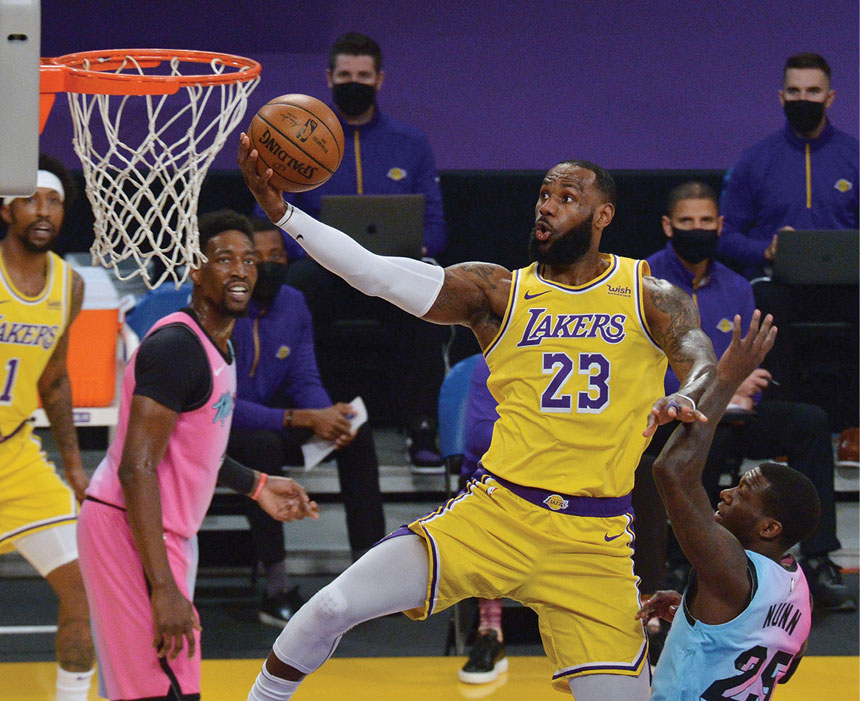
Some of the vital elements of a good process for anyone who wants to choose and act well in the face of extraordinary pressures are: conditioning, practice, candor, discipline, and culture. They are fundamentals.
Conditioning
Laymen tend to think of athletic conditioning as something you do to build muscle. But a mountain of neuroscience shows that physical training increases gray matter in the front lobes of the brain, enhancing working memory, attention, focus, and executive function, the processes that form basic cognition. Athletes like Michael Phelps don’t need to read that neuroscience; they live it.
Practice
What made Andy Reid so sure of that fourth-down call? What was his secret to taming uncertainty under pressure? Inspiration? Instinct? Actually, it was something far more banal: rehearsal. Reid could make that call confidently with the Super Bowl at stake for one reason only — because he knew it had been so well practiced by his players. Without that assurance, even the best-designed play can make a shot caller look like a fool.
Discipline
Even when they make snap decisions in a fast-moving contest, good shot callers are always married to discipline. Though it may sound counterintuitive, discipline is actually what allows for effective improvisation — without it you’re just an uncontrolled hacker or jacker. If you ever hear a young talent say they want to play on “instinct,” you can mark them down as a probable bust. Managerial tyrants misinterpret discipline as demandingness. But it’s as much about restraint — what you won’t do — as what you will do. The greats make level-headed choices based on structured habits laid down long before they reach the critical moment.
Candor
One virtue all great play callers and playmakers possess is frankness. They have no use for yes-men or -women. None. They are candid with themselves and others. They certainly have egos, but they have a fundamental lack of vanity when it comes to dissecting their performances, because it’s the only route to true assessment.
In the work that any of us do, our situational awareness is limited. It’s impossible to perceive all that’s going on around us, to know what we’ve missed, where we’re wrong or mistaken. The greatest performers restlessly seek fresh eyes that will point out what they’ve lost sight of.
Culture
No one succeeds alone, not even LeBron James. We all live and move within organizations, melting pots in which lots of disparate, highly individualistic, and sometimes egotistical talents collaborate in our successes and failures. Some entities make good decisions more consistently than others for years at a time. Why? What makes a “winning” culture?
What can be said definitely about culture is that certain specific conditions encourage that growth. And the foremost of those conditions is authentic commitment — to a group goal, to your colleagues, to the project — over commitment to yourself.
Sally Jenkins has been a sports columnist and feature writer for The Washington Post for more than 20 years. The 2021 winner of the Associated Press Red Smith Award for Outstanding Contributions to Sports Journalism, she is the author of 12 books of nonfiction, including The Real All Americans.
From The Right Call: What Sports Teach Us About Work and Life by Sally Jenkins, Copyright © 2023 by Sally Jenkins. Reprinted by permission of Gallery Books, a division of Simon & Schuster, Inc.
This article is featured in the November/December 2023 issue of The Saturday Evening Post. Subscribe to the magazine for more art, inspiring stories, fiction, humor, and features from our archives.
Become a Saturday Evening Post member and enjoy unlimited access. Subscribe now
